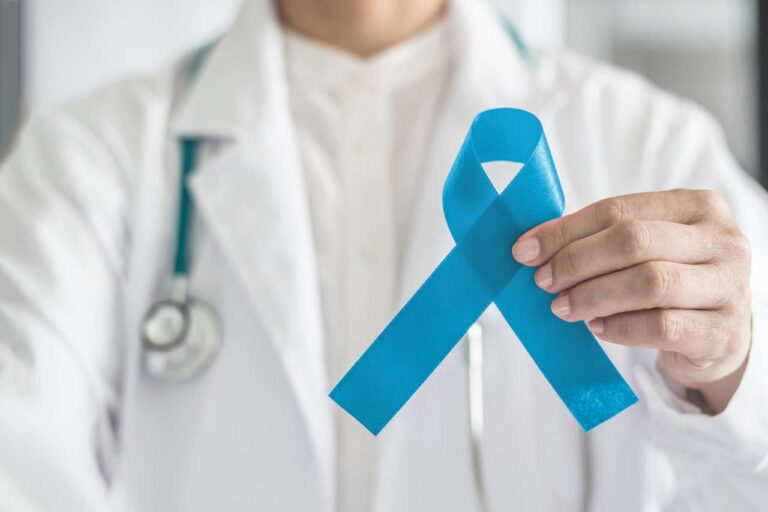
Your doctor may prescribe Granix if you are receiving chemotherapy and are at higher risk of infections due to severe neutropenia — a condition in which white blood cells (WBCs), especially neutrophils, fall below the normal level.
Speak to a Specialist
About Copay AssistanceThis article discusses the basics of Granix, including its working mechanism, dosage and administration, common side effects, and precautions.
What Is Granix?
Granix, also known by the name of its active drug “tbo-filgrastim,” is a prescription medication typically prescribed to treat and reduce the duration of severe neutropenia in patients undergoing chemotherapy or taking anticancer medications.
Granix belongs to the class of colony-stimulating factors (CSF), which are the type of glycoproteins that stimulate the production of WBCs, especially neutrophils (a type of white blood cells that are important in fighting bacterial infections).
The FDA first approved Granix on August 30, 2012, and it is currently available as an injection solution.
What Is It Used To Treat?
As per FDA approval, Granix is used in adults and children (1 month of age and older) with certain types of cancer (non-myeloid malignancies) under the following conditions:
- Patients who are receiving chemotherapy that affects their bone marrow
- To decrease the duration of severe neutropenia in patients undergoing chemotherapy
How Does Granix Work?
Granix works to stimulate the production of WBCs (neutrophils) and shorten the time patients have severe neutropenia during chemotherapy.
When a cancer patient undergoes chemotherapy, the anticancer medicines that fight cancer cells also kill the healthy white blood cells (WBCs), resulting in a low number of neutrophils in the blood. This increases a patient’s susceptibility to certain infections.
Working Mechanism of Granix (Tbo-Filgrastim)
The active component of Granix, “filgrastim,” works like a naturally produced colony-stimulating factor (CSF) in the body. Filgrastim signals the stem cells in the bone marrow to make more white blood cells (neutrophils). The newly produced neutrophils then migrate from the bone marrow into the blood circulation to fight infection.
What Are the Available Dosage Forms and Strengths?
Granix is available as a single-use prefilled syringe with a strength of 300 mcg/0.5 ml and 480 mcg/0.8 ml.
Dosing Information
The recommended dose of Granix for adult and pediatric patients (1 month and older) is 5 mcg/kg once a day. The first dose is usually given within 24 hours after the chemotherapy dose.
You should not receive a Granix injection earlier than 24 hours before your next chemotherapy session.
How Is Granix Administered?
Granix is injected subcutaneously (under the skin of the abdomen, arms, upper hips, or buttocks) by the healthcare provider.
It is administered once a day until the neutrophil count returns to the normal range.
Can You Take Granix at Home?
Yes, you can inject this medication at home after getting instructions on proper injection techniques from your healthcare provider. You should carefully follow your healthcare provider’s instructions while injecting Granix. For example:
- Check the medicine in the syringe, and make sure it is clear and NOT cloudy, discolored, or foamy.
- Place a drug-containing syringe at room temperature for 30 minutes before use for a more comfortable injection.
- Follow the aseptic technique before injecting Granix as instructed by your healthcare provider.
- You should rotate the injection site every time you take an injection.
- If you are taking two injections, make sure there is a one-inch distance between the two injection sites.
- Do not inject this medication into tender, red, bruised, or hard areas with scars or stretch marks.
Get Financial Assistance
What Are the Side Effects?
Cancer patients taking Granix can experience some common and potentially serious side effects.
Common Side Effects

The most common side effect is bone pain. Children taking Granix may experience the following side effects:
- Thrombocytopenia (low platelet count)
- Dizziness or headache
- Fever
- Pain in the arms and legs
- Diarrhea
Potentially Serious Side Effects
Patients taking Granix may develop or experience potentially serious and life-threatening side effects, which include:
- Serious allergic reactions (swelling, wheezing, rash all over the body, shortness of breath, fast heart rate, and swelling around eyes or mouth)
- Spleen rupture (spleen becomes enlarged and ruptures)
- Acute respiratory distress syndrome (symptoms include shortness of breath, fever, or trouble breathing)
- Sickle cell crisis
- Kidney injury
- Capillary leak syndrome (a condition in which fluid leaks from blood vessels into tissues)
- Leukocytosis (increased white blood cell count)
- Myelodysplastic syndrome (MDS) and acute myeloid leukemia (AML)
- Aortitis (inflammation in the aorta)
If you experience any side effects mentioned above, immediately consult your healthcare provider. They may decrease your dose or temporarily or permanently stop the treatment to avoid fatal complications.
Speak to a Specialist
What Precautions Should You Take While Taking Granix?
Before taking the Granix injection, consult your healthcare provider and share your health status and medical history. It is especially important to tell your doctor if you are/have:
- Pregnant or intending to become pregnant: It is not known if this medication will harm your unborn baby. Therefore, it is important to avoid taking Granix injections if you are pregnant or use contraceptives during treatment.
- Breastfeeding: It is unknown if this medication passes to breast milk; therefore, you should avoid breastfeeding during treatment and at least 2 weeks after your last dose.
- Taking prescription medicines, over-the-counter medicines, vitamins, and herbal supplements
- Kidney problems
- Sickle cell disease
Cost
The cost of Granix (300 mcg/0.5 ml) subcutaneous solution is around $273 for a supply of 0.5 ml, but it can vary depending on the pharmacy you visit.
If you are considering this medication, you should contact us about potential assistance programs that can help reduce out-of-pocket expenses.
Is There A Generic Version?
No, currently, no generic version is available in the market.
Summary
Granix (tbo-filgrastim) is a prescription drug for severe neutropenia. It is typically given to patients undergoing chemotherapy who have low neutrophil count. Granix works to reduce the duration of severe neutropenia in cancer patients and stimulate the production of neutrophils. Along with its benefits, Granix also causes some common and potentially serious side effects. Therefore, you should consult your healthcare provider before taking this medication.
REFERENCES:
- US Food and Drug Administration (FDA). Granix Prescribing Information: https://www.accessdata.fda.gov/drugsatfda_docs/label/2014/125294s035lbl.pdf
- TBO-Filgrastim (Subcutaneous route). (2024, February 11). https://www.mayoclinic.org/drugs-supplements/tbo-filgrastim-subcutaneous-route/proper-use/drg-20061234
- Pettengell, R., Bias, P., Mueller, U., & Lang, N. (2016). Clinical safety of tbo-filgrastim, a short-acting human granulocyte colony-stimulating factor. Supportive Care in Cancer, 24(6), 2677–2684. https://doi.org/10.1007/s00520-015-3057-2
- Federman, N., Dragomir, M. D., Kizyma, Z., Lebedev, V., Roganovic, J., Bias, P., Lammerich, A., Roth-Ben Arie, Z., Zou, L., & Buchner, A. (2017). A Phase 2, International, Multicenter, Prospective Clinical Trial of Subcutaneous Tbo-Filgrastim in Pediatric Patients with Solid Tumors Undergoing Chemotherapy. Blood, 130, 2271. https://doi.org/10.1182/blood.V130.Suppl_1.2271.2271













